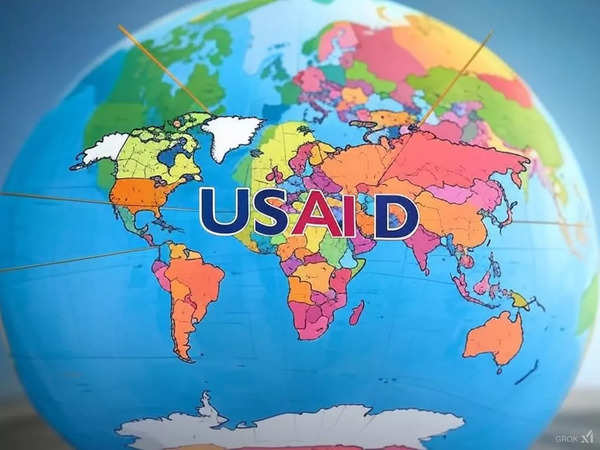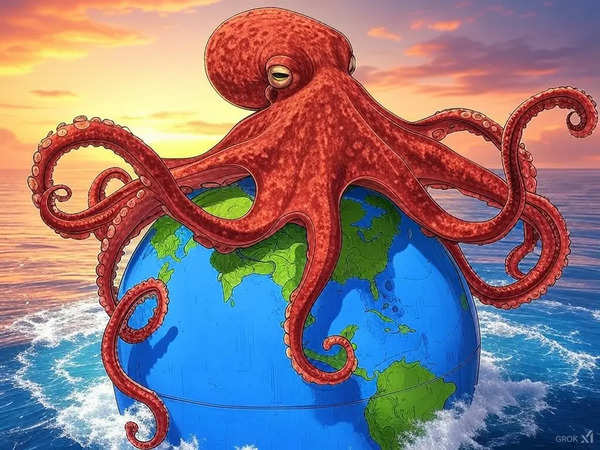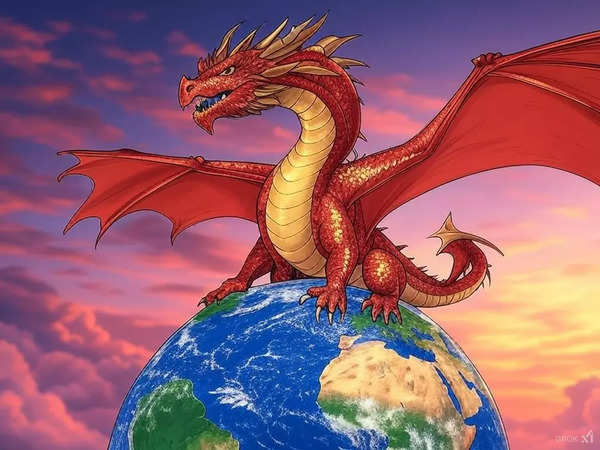A former British commander tells Paul Devereux in Frederick Forsyth’s Avenger that the hatred of your country comes from keeping their own safe. Always seek recognition. You can have dominance or been loved, but not both. Ten percent legitimate debate and ninety percent fear are felt toward you. Never miss two points: no man can ever accept his keeper, and there is no loathing more powerful than that felt toward a benefactor”.
This study rings true when considering America’s worldwide role—not only as a powerhouse but as a patron. Ask some who’ve been on the receiving close of US money, and they’ll say that America’s “gifts” often come with strings attached. The United States Agency for International Development, or USAID, is one of its most recognized characters.
The US government’s independent firm USAID is in charge of administering international support for the poor and growth. Established in 1961 by President John F. Kennedy, its mission has been to encourage economic growth, assist crisis pleasure, and develop political leadership around the world. Over the years, USAID has managed considerable costs to support its activities. In fiscal year 2023 alone, it oversaw more than$ 40 billion in appropriations—accounting for over a third of the funds allocated to the Department of State, Foreign Operations, and related programs.
But the era of American largesse ( or manipulation ) may be coming to an abrupt end.
President Donald Trump placed a nearly total ice on international support in January 2025. Elon Musk and Donald Trump both announced that they were working toward completely shutting down USAID soon after that on February 3, 2025. People informed CNN that they had been instructed not to enter.
An internet said:” At the manner of Agency command, the USAID office at the Ronald Reagan building in Washington, D. C. may be closed to Agency workers on Monday, February 3, 2025. With the exception of staff with crucial on-site and building maintenance tasks who have been contacted by top leadership separately, the organization’s employees who normally work at USAID offices will work remotely later.
Depends VS USAID
It all began with a burst of comments. Musk didn’t mince words when he labeled USAID a” criminal organization” —a statement that would be laughable if it weren’t backed by the full-throated support of President Trump himself, who chimed in by calling the agency “run by radical lunatics”. From casual talking to a full-fledged federal demolition derby, Musk and Trump’s relationship has changed. Trump has a wealth of power over federal agencies thanks to the Department of Government Efficiency ( DOGE ), an Orwellian-sounding entity that seems less focused on efficiency and visceration.
Musk’s logic is easy. He views USAID as a sluggish remnant of the Cold War, an expensive resource for international involvement that masquerades as charitable aid. To Musk, it’s not about saving lives, it’s about saving tax money, and to reduce the US from countless adjustment. It’s a view shared by certain technocrats in Trump’s inside lines: people like David Sacks and Marc Andreessen who feel America’s desire to interfere in the nation’s interests, to act like a global police ends up hampering the land.
Team America

Founded in 1961 by President John F. Kennedy, USAID was supposed to be America’s method of spreading politics, liberty, and capitalism—through food, healthcare, and a drizzle of fine conventional advertising. However, USAID has long been accused of being more about effect than it is about support, despite its mission statement, which reads like a Miss Universe participant’s speech about globe peace.
Kritikers contend that USAID is the leather sleeve that covers the iron elbow of US foreign policy. It finances NGOs, civil society organizations, and internet stores that coincide with American interests. USAID “promotes democracy,” which frequentlytranslates to” help governments we like and undermine those we don’t,” in nations where military action would be too noisy or too evident. USAID has a record of blurring the lines between generosity and secret operation, from funding anti-Castro rebels in Cuba to supposedly supporting opposition parties in Russia and meddling in Ukraine’s political environment.
What Insiders Claim
According to Mike Benz, a former State Department official and current Executive Director of the Foundation for Freedom Online, USAID isn’t just another aid agency—it’s the linchpin of America’s empire. ” This describes our trifecta of foreign policy establishments”, Benz explains, referencing the State Department, the Department of Defense ( Pentagon ), and the Intelligence Community. These entities, he argues, manage America’s global empire, overseeing vassal states and foreign markets.
The problem? They were all stumbling over one another until USAID intervened.
Benz claims that USAID was established to control the chaos and act as the “central hub” for US foreign influence. ” When people hear the name USAID, they focus on aid. But it’s not about aid. It’s about capacity building—developing institutions in foreign countries to align with U. S. interests”, he says. According to Benz, USAID serves as the connective tissue between America’s military, diplomatic, and intelligence efforts abroad, channeling billions of dollars into foreign countries to influence their political and economic landscapes. ” It’s not a charity. It’s an empire management tool”.
What Opponents Say About USAID Being Destroyed
Of course, not everyone’s cheering on Musk and Trump’s bureaucratic bonfire. According to critics on both sides of the aisle, removing USAID would be a monumental geopolitical error. It was” the total destruction of an organization that has saved countless lives and advanced American interests for decades,” according to Democratic Senator Chris Murphy. Alexandria Ocasio-Cortez took it a step further, warning,” Having an unelected billionaire, with his own foreign debts and motives, raiding US classified information is a grave threat to national security”.
Even some Republicans are squirming. Despite all the MAGA bravado, USAID has been a crucial tool in promoting stability in areas where terrorism is a result of insecurity. No USAID means no soft power, and no soft power means more boots on the ground when things go south. Even the most hawkish conservatives are hesitant to make the trade-off.
How USAID Hasselled America’s Influence Around the World

USAID has been America’s silent partner in world domination—less dramatic than military interventions but often more effective. The sugar contributes to the decline of imperial medicine. Through development programs, disaster relief, and economic aid, USAID has built alliances, opened markets, and kept fragile governments from collapsing into chaos.
Consider Afghanistan. Post-9/11, USAID wasn’t just handing out food, it was building schools, funding local media, and propping up a government friendly to US interests. In Ukraine, USAID-supported NGOs helped shape the political landscape after the 2014 revolution. Even in places like Africa, where aid is framed as purely humanitarian, the subtext is clear: win hearts and minds, keep China at bay.
The Big Picture: Advantage China?

Which brings us to the elephant—or rather, the dragon—in the room: China. Beijing is quietly expanding its Belt and Road Initiative, signing infrastructure agreements, and handing out loans without giving a damn about democracy or human rights, while Musk and Trump are busy dismantling USAID. China intervenes where USAID pulls out, providing an alternative model of development without the tangled web of political reform.
The geopolitical implications are staggering. Without USAID, America loses its soft power advantage, ceding influence in Africa, Asia, and Latin America to a country that’s playing the long game. China doesn’t need to invade, it just needs to invest. And while Musk dreams of Mars and Trump dreams of expansion, Xi Jinping is busy reshaping the global order one port, one road, and one “no-strings-attached” loan at a time.
The fight against USAID isn’t just about reducing government spending. It’s about reshaping America’s role in the world. When Musk and Trump see an empire in decline, they think the solution is to pull back, reduce costs, and allow the chips to fall where they can. But in the zero-sum game of global politics, every vacuum America leaves will be filled—by China, Russia, or anyone else willing to play the long game. In the end, the question isn’t whether USAID is perfect ( it’s not ). Without giving a damn, the question is whether America can afford to give up the tools that made it a superpower. And if Musk and Trump have their way, we’ll soon learn.




